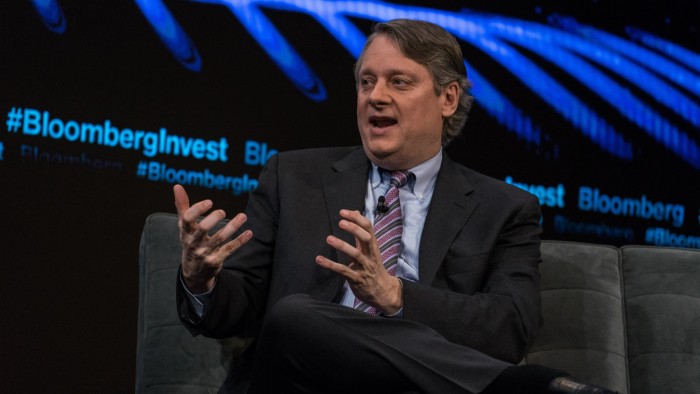Bond fund giant Pimco warns of ‘hard landing’ for UK economy

Simply sign up to the Sovereign bonds myFT Digest -- delivered directly to your inbox.
The UK is at high risk of a serious economic downturn next year, one of the world’s biggest active bond fund managers has warned.
Daniel Ivascyn, chief investment officer at Pimco, told the Financial Times that he has been running larger than usual bets on UK government bonds relative to those from the US, in anticipation that the UK will suffer greater economic strain.
“In the case of the UK — a smaller, open economy, with a consumer that’s feeling the brunt of central bank policy far more than their US counterparts — you just have a higher probability of more significant economic deterioration.
“We do think there’s potentially more hard landing risks.”
The UK economy unexpectedly shrank in October, contracting 0.3 per cent after a 0.2 per cent expansion in the previous month, according to data last week. On Thursday, the Bank of England trimmed its fourth-quarter economic growth forecast back down to flat, from 0.1 per cent previously, in part due to weaker household spending.
UK government bond yields, which move inversely to prices, have already fallen sharply since late October, with benchmark 10-year yields sinking by a full percentage point to about 3.7 per cent.
The move has been driven by investors betting on a faster pace of interest rate cuts next year and has been led by the US bond market, which exerts a strong influence around the world.
A weaker UK economic outlook would typically be expected to pull those yields down further, generating strong returns for bondholders.
Ivascyn also highlighted the eurozone as being susceptible to a deeper economic downturn in the year ahead. His large investments in UK and European bonds relative to the US have “worked out very, very well”, he said.
“The risk of harder landing scenarios [in the eurozone and the UK] or the susceptibility of those economies to additional unanticipated growth shocks are much more significant,” he said. The US economy has proven to be surprisingly resilient in 2023, but the UK and Europe risk “a more significant deterioration”.
The European Central Bank on Thursday revised down expectations for euro area growth in 2023 and 2024, forecasting that gross domestic product growth this year will be 0.6 per cent.
Higher interest rates tend to have a more immediate slowing impact on European economies than in the US, in part because of the long-term structure of US mortgages.
The BoE and the ECB on Thursday pushed back against expectations for interest rate cuts early in 2024, just hours after the US Federal Reserve suggested it may cut interest rates three times next year. BoE governor Andrew Bailey said there was “still some way to go” before inflation sank back to the target, while ECB president Christine Lagarde said there was “work to be done”.
The downbeat outlooks for the UK and eurozone economies are in stark contrast to the US, where growth has remained strong.
This time last year, forecasters surveyed by the Philadelphia Fed were betting on a roughly 50 per cent chance of a decline in real US GDP in the first quarter of 2023. Earlier this year analysts and economists were betting on a recession. Instead, the resilient US consumer — still buoyed by the historic government stimulus during the early days of the Covid-19 pandemic — drove GDP growth to 5.2 per cent in the third quarter.
The broad consensus now among investors is that the Fed will manage to deliver a soft landing — bringing inflation down to target without cracking the economy. Risky assets such as stocks, which perform well when the economy is humming and when interest rates are lower, have surged as US investors bet that the Fed will cut rates early in 2024.
Ivascyn said he did not expect a US recession next year, but added that he saw a greater risk of an economic slowdown than most traders are pricing in. The divergence between the US and other big markets presents an interesting investment opportunity, he said.
“Global bond investing was dead for a long period of time because yields were negative in the UK, Europe and Japan,” he added. “But global bond investing is back. It’s the first time in a long time we’ve been excited about value and relative value in the UK, Europe and Japan.”
Comments